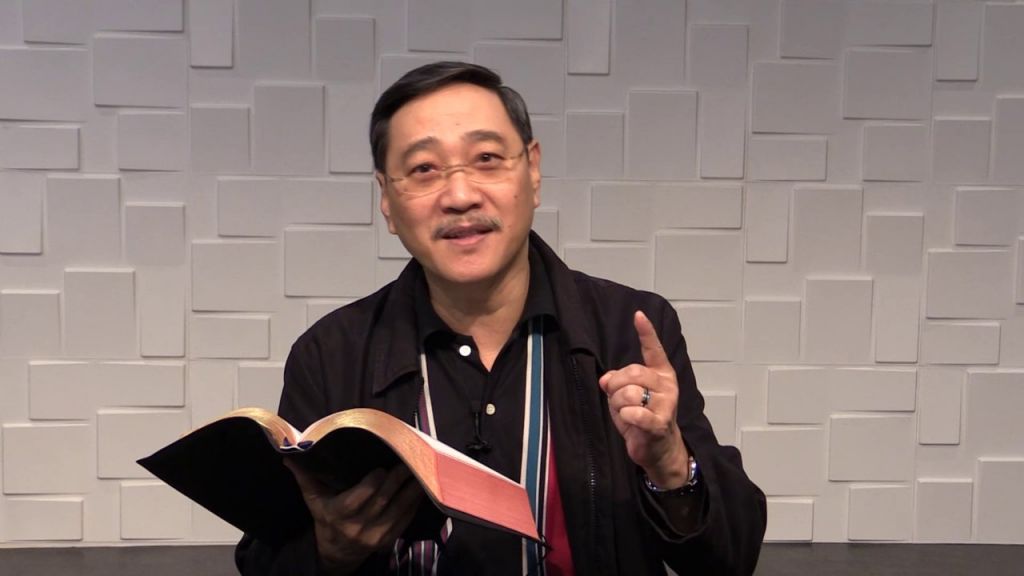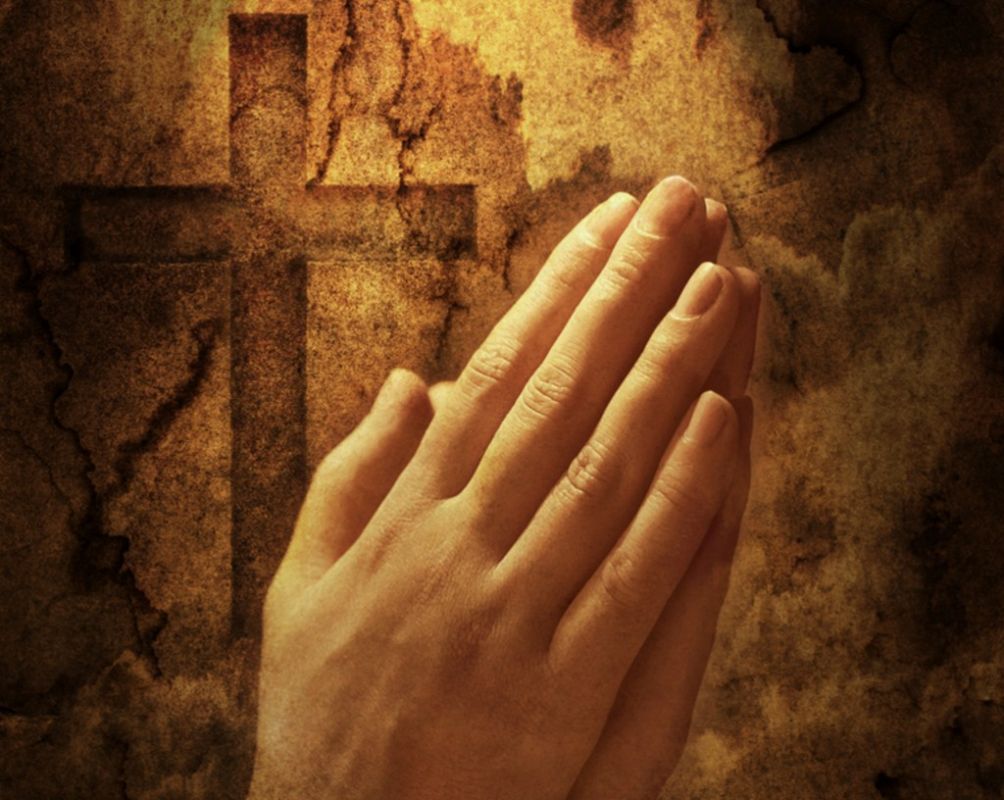
25 Feb 2015 by Adeline Lum CM-
Edmund Chan, Founder of the Intentional Disciple-Making Church (IDMC) Global Alliance and speaker of the disciple-making conference at Wesley Methodist Church Kuala Lumpur had a Q&A session on 15th of February.
Among the questions presented, only three questions with their respective answers by Edmund Chan are presented here:
Question #1
You mentioned that we should not become too presumptuous or simply said, do not make a statement a fact. Then, why does a Christian even bother praying because doesn’t that presume you know God?

Edmund Chan: According to Christian Reflections by C.S. Lewis, Lewis also talked about why we should pray if God knows everything; if we pray for God’s Will be done, obviously that will happen. Lewis did not give us a conclusion but he provoked us to think about our relationship with God. It is God who directs us to pray us to pray about everything. (Phil 4:6)
The reason I believe why God calls us to pray is not for Him but for us. I am a father. But there are times I would wait for my daughter to ask even though I have already prepared the gift. The reason I do this is so that I can establish afresh my relationship with my daughter.
One of the most poignant questions in Scripture is in Genesis 3 when Adam and Eve sinned. God’s question to the fallen pair is, “Where are you?” We cannot presuppose that God didn’t know where they were. It was not a matter of geography but a matter of relationship with God.
Also, prayer declares our full dependence on God. “Until now you have not asked for anything in my name. Ask and you will receive, and your joy will be complete.” (John 16:24)
The question is: how then should you pray? I will pray with a heart of surrender. This posture of surrender is not only in times of need because God is not a genie in a bottle. This posture of surrender should exist in every season of our life.
How do we regularly exercise surrender? Regularly, I would come before God and I would empty my pocket with my wallet, take off my glasses, and remove my watch. It’s a ritual I do to represent my inner state. My wallet represents my possession. My glasses represent the way I see things. And my watch represents my time. So, from my possession to my time, I give to God. Very often, I will take off my shoes in prayer to represent God in guarding and leading my steps.
When we have a posture of surrender and tell God, “Lord, in this situation, I don’t know how to pray, can you please help me?” Prayer is one of the most important disciplines in discipleship today. Unfortunately, it’s neglected.
I learned prayer during my Bible college years. When the students are eating, God would take me up to the prayer room. When I graduate, I told God that I am not satisfied with my prayer life. I asked God and God gave me a spiritual hunger.
I had no money and I did not know where to go for a three days and two nights prayer with God. So, I knocked on the door of a pastor and he said that there was an old classroom. I knew instinctively I just needed water.
So, I went to the room zealously and prayed for everything I could think of. Then, I looked at my watch and four hours have passed. I panicked because three days meant that I have 68 more hours to go. Then God said to me, “Prayer is not talking to Me. But prayer is keeping company with Me.” I remember that. Prayer is listening to His Word.
Then, that night, I was exhausted and I slept until somebody woke me up. There was a external and audible male voice that said, “Aha! So, you are here!” It was dark and I couldn’t move. Then, it struck me; nobody could come into this room because the door was bolted. The voice said, “Who do you think you are?” I was a strong and young military man but I could not move. Then, another voice said, “Don’t worry. I am here.” I prayed and the shadow left. When it left, there was a glow in the room and the peace of God was incredible.
I was like a weaned child and I could easily go back to sleep. But God’s presence was there! How could I go back to sleep? So, I switched on the lights around two in the morning. And all the way to dawn, the Lord deposited in my heart what became the foundations of my heart. I learned the principle: I can’t but God can. I learned that there’s a supernatural naturalness to spiritual discipleship. I don’t need to cook up something or exert something. In that naturalness, there is a super empowerment of God.
However, I don’t believe that these spiritual encounters are marks of spiritual maturity. I don’t think that everyone wants to have spiritual encounters. In the book I wrote—Growing Deep in Faith—I wrote of my conversation with John Oak, the founder of one of the largest Presbyterian houses of worship in the world. John said to me, “I don’t have your kind of experiences and I praise God. The way God lead me is of a different kind.”
God encounters us in different ways. But God takes us from where we are and He leads us. I tell you all this because we have lost the “supernaturalness” of Christianity. The danger is when we jump to the other side; then it becomes superstition.
For me, in the same way, I will exchange my mentor conferences for a disciple; I will exchange all my experiences for the Word of God. In that simplicity, we find the deep meaning to prayer.
Question #2
Many of us have dream, some good and some bad. But how do we determine that certain dreams are from God. Secondly, you and your wife gave your very last cent to the church. How do you feel so sure that this is what God wants you to do? You are taking a very big risk. How come you are able to take this risk?

Edmund Chan: The best way I could answer this is in the book, “Cultivating Your Inner Life.” In that book, we used the term “innermost being” and “inner life.” But we have not defined this term. I asked God, “Lord, what is the terrain of the inner life?”
The first terrain is inner compulsions. And every one of us has it. If it’s dark, it’s addiction. If it’s by the Lord, it’s passion. We have aspirations for God and we also have sinful dark passions. Only Jesus has no dark compulsions in His soul.
The second terrain is our inner conscience. Our inner conscience tells us what is right and what is wrong, to show my godly passions are good and my dark addictions are not good. But the conscience can become seared, where the bad becomes good; it’s like a faulty thermostat that cannot differentiate beautiful and ugly or right and wrong.
The third terrain is the conviction by God, which enlightens, purifies, and cleanses the conscience, redeeming it as an effective faculty to differentiate right and wrong. The Word of God cleanses us and draws us to the passion of God. There’s an increased sanctification with God’s Word and our soul matures in the deep things of God. That maturing gives us an inner compass. This compass allows us to take the leading of the Lord. And it is developed over time in the walk with Him. Just like how you cannot take a course to learn how to swim or read to learn how to drive, you need to learn by doing it or living it.
The fourth terrain is composure. It is the feeling of “you know that you know that you know” that it is the Lord’s leading. You have rested Christian leaders and restful Christian leaders. And that restedness is found when you know your dreams are from God. But how do you know? This is because of the terrain of your inner life. There’s no easy answer to that question. I cannot say, “Here are five steps.” We find a place of solitude and silence to rest our soul. We can pray, “God, help me to rest and guide me.” It’s a journey.
For the risk, I don’t think it’s a big risk. If I didn’t do it, it’s a bigger risk. I love to read and I think I would have been able to study the stock market. There’s one point I was burdened, I would look at the world though I don’t have stocks and shares. But if I have them, I would liquidate. But as a pastor, I cannot give advices for the stock market. There would be people coming to me asking, “Tips! Tips! Tips!” instead of Bible knowledge. I would simply throw the congregation into covetousness and greed.
To cut the long story short, three weeks later, a guy wrote me a thank you letter. He liquidated his income and thanked me. But I asked him if he is now giving to God. The thing is if you’re not giving to God, you’re dividing your life on what you can lose. Our appetites need to be mentored. From the day you get a car, your appetite gets bigger to getting a BMW and an even better car. There’s always better, newer, and greater. And we will never be happy.
I learned that when we accumulated whether possessions or goods, the accumulation does not satisfy but enlarges our appetites. The new things we have, will only satisfy for three months. It will not satisfy because the things we are chasing are always changing to be better and bigger. Would it not be a greater risk to have a dissatisfied soul?
As a family, it is the little things that satisfy us—the things we have together, that shared joy. On my 50th birthday, I celebrated it in Newton Hawker Center. My children’s birthdays are in Newton Hawker Center. My wife and I celebrated our wedding in Newton Hawker Center. We learned to enjoy the little things and be filled, rather be dependent on other things to satisfy our soul.
It’s our ego. I remember when I first flew in the plane, I was so happy! But now, the airplane and airports are almost like my second home. My friends told me, “You should go on business class from the times you travel, from the point earned.” In long flights, I upgraded my flight back to Singapore. I thought, “Wow! Now is business class!” It’s not the service, the comfort, and the leather, but the ego attached. I told the flight attendant not to wake me up during meals, so that I could sleep. When I woke up, I asked for Maggi noodle instead of the nice business class food. To me, it’s my comfort food.
You got to realize that this world is not your home. We are just passing here. I live in the hotel a big part of my life. I don’t go there to change the curtain and hang my family picture because it’s not my home. When I rent a car, I don’t change the lights. Don’t make yourself so comfortable in that home or car. It is only rental. Just live simply.
You can choose to live above your means, at your means, or below your means. I have chosen to live below my means. We choose to live sacrificially. Everything that is given to us becomes a bonus. We are very rich already. Otherwise, the ego or poverty mentality gets in the way.
I was asked how I did fund-raising. On the worship service, you asked everyone to stand and reach out to your neighbor’s wallet. You wave it before the Lord and you take however much in the wallet to tithe. If you’re holding you neighbor’s wallet, you will give all because the next person is going to give all anyway.
Does God what you to be a good steward of all that you own? It’s a trick question. If you own it, you cannot steward. God wants you to be a good steward for all that He owns. Stewardship beings when you realize that you are not the owner. You realized the joy of simplicity in the ancient path. Return to the ancient path. I teach this in radical discipleship—stewardship discipleship.
Question #3
Does the person who disciples us need to be spiritually mature? And also, how long does mentoring need to persist? It’s hard to find mentors.

Edmund Chan: Wherever you are, you can still find someone to pray for you because it’s the matter of the heart. You can also find peer mentoring to hold each other accountable.
But when we start the journey, it’s wise to find someone spiritually older to help you. As for duration, I start with one year. After that year, we reveal whether we want to continue the discipleship or not. There are some that we have been continuing the relationship for 20 years now. I actually ask, “Would you like to continue the mentoring relationship” by one year. But in some cases, I reveal it at two years.
The heart of mentoring is following Jesus. As long as we grow in Him, we can help someone along the way. There’s a very thin line between mentoring and “tormentoring.” So, I take one step at a time.
Note: While retaining the meaning of the content, the author amended some sentences to make the content more readable and concise.
| Share the Good News |
Disclaimer: This article is written to report the content by the speaker as much as possible, according to the recording by the author. It is not comprehensive and not vetted by Wesley Methodist Church KL.




Leave a Reply